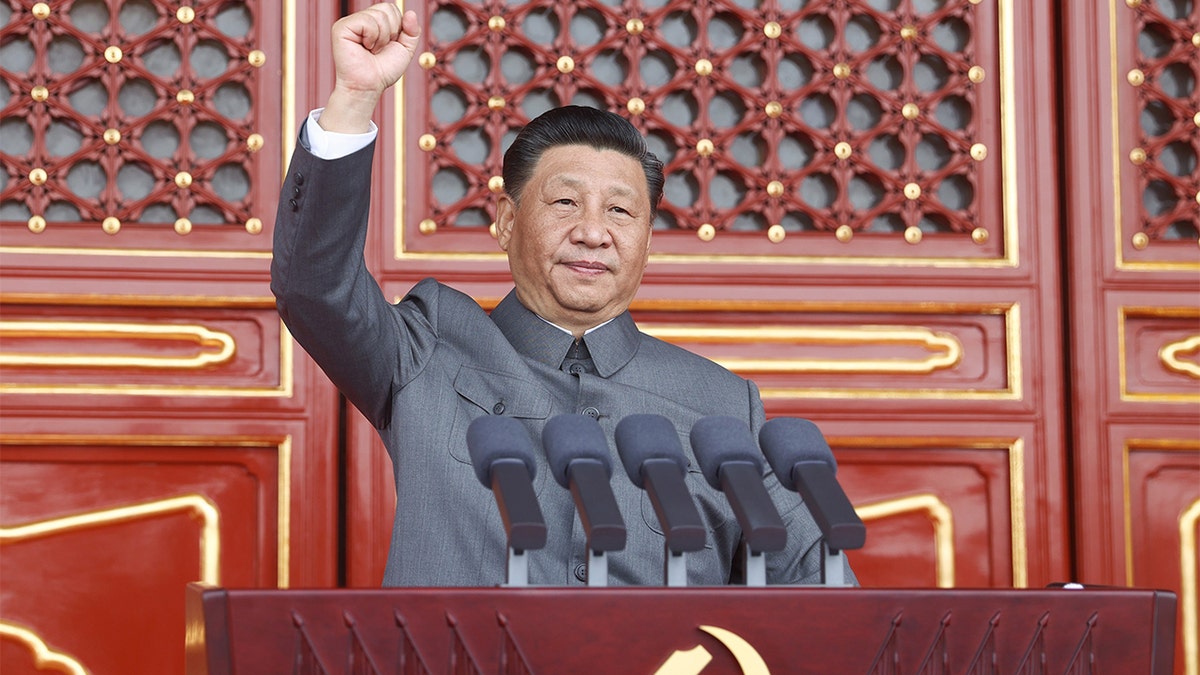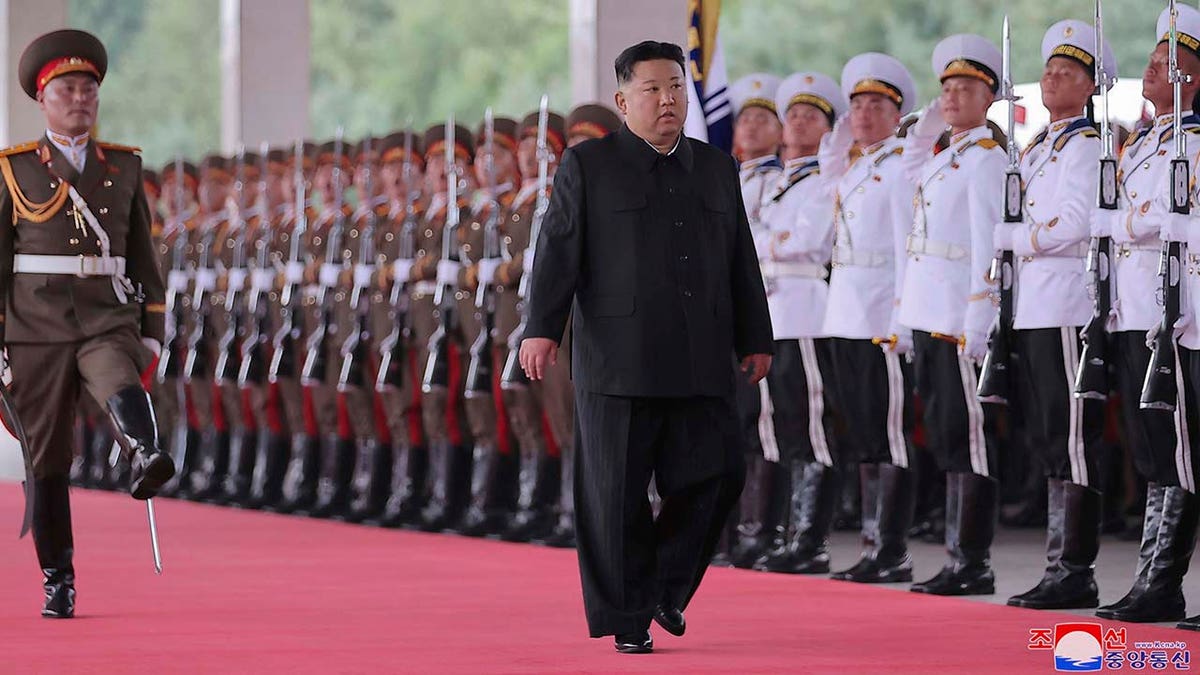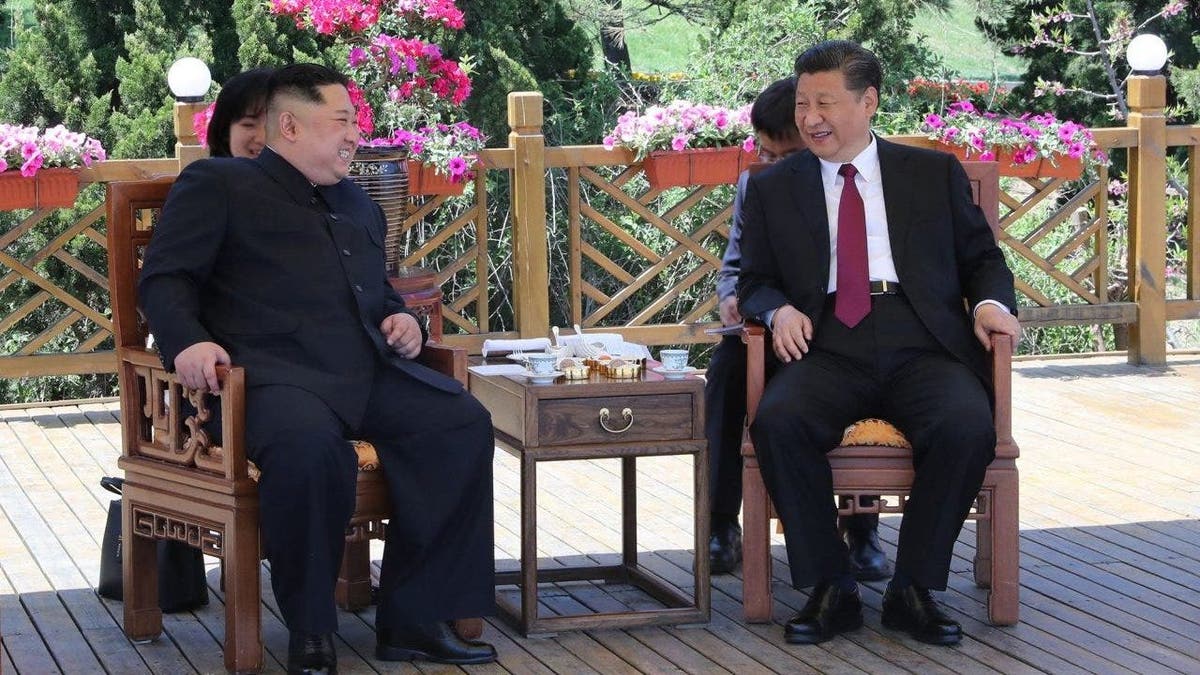North Korea launches ICBM that could reach any part of US: state TV
North Korean state TV published footage of the launch of an intercontinental ballistic missile Monday. (KRT)
TOKYO — Japan continues to increase defense spending in response to increased threats from China and North Korea.
Over the past month, Japan has faced increased Chinese aggression toward Japanese territory and yet another North Korean missile launch into the Sea of Japan.
Cognizant of the challenges it faces, Japan has pushed forward to bolster its national security through increased defense spending, engaging in closer cooperation with the U.S. and South Korea and eliminating a ban on lethal weapons exports.
"China is conducting broad spectrum, total warfare and information warfare against a number of countries, but Japan consumes a lot of Chinese resources and attention." Lance Gatling of Nexial Research told Fox News Digital. Gatling is a retired U.S. Army Japan strategic planner and former U.S. Department of Defense liaison officer to the Japanese Self-Defense Forces Joint Staff Office.
JAPAN APPROVES MASSIVE MILITARY SPENDING GROWTH, LIFTS BAN ON LETHAL WEAPONS EXPORTS

Japan continues to increase defense spending in response to increased threats from China and North Korea. (David Mareuil/Anadolu via Getty Images)
Adding to the regional tensions, China announced it is ramping up its territorial claims over the Japanese Senkaku Islands in the East China Sea. The Senkaku Islands are a group of uninhabited islands controlled by Japan in the East China Sea that China lays claim to. Aside from providing natural resources, their location is considered strategically important.
The U.S., Japan and South Korea responded to China's recent moves to occupy the territory in a joint statement following the inaugural trilateral Indo-Pacific Dialogue in Washington, D.C., earlier this month.
The joint statement said, in part, "Recalling the publicly announced positions of the three countries regarding the recent dangerous and escalatory behavior supporting unlawful maritime claims by the PRC in the East China Sea, they strongly reiterated their firm commitment to international law, including the freedom of navigation and overflight, as reflected in the U.N. Convention on the Law of the Sea, and they opposed any unilateral attempts to change the status quo by force or coercion anywhere in the waters of the Indo-Pacific."

Japan is expanding its defense capabilities through stronger military ties with friends and allies. (David Mareuil/Anadolu via Getty Images)
Gatling noted some other ways China is antagonizing Japan.
"You can see their efforts in intimidating Japanese companies doing business in China," Gatling said.
He mentioned, as an example, "China’s arrest, trial and conviction of a long-term Japanese pharmaceutical company Japanese citizen executive without explanation, as well as its threatening to limit exports of rare earth materials such as gallium and lithium, critical to Japan's manufacturers of semiconductors, electric motors/drives, etc."
Gatling spoke of "increased numbers and intensity of Chinese incursions into Japan's exclusive economic zone, particularly by commercial fishing boats escorted by Chinese Coast Guard or Fisheries patrol vessels around the contested Senkaku Islands."
China is also linking cooperation or military pressure against the Philippines to cooperation with the Japan Self-Defense Force and Ministry of Defense. They are increasing the scale and frequency of bilateral Chinese-Russian military operations in the waters adjacent to and surrounding Japan, including the transit of international straits between Japanese islands with large, integrated naval and aviation assets."
CHINA'S XI JINPING SAYS TAIWAN WILL 'SURELY BE REUNIFIED' IN YEAR-END ADDRESS

China announced it is ramping up its territorial claims over the Japanese Senkaku Islands in the East China Sea. (Ju Peng/Xinhua via Getty Images)
In addition to increasing its defense budget in response to these threats, Japan is expanding its defense capabilities through stronger military ties with friends and allies. Japan agreed to a missile data-sharing and military training program with the United States and South Korea.
China is not the only player sounding alarm bells for Japan. North Korea, whose foreign policy interests often align with China, is also on Japan’s radar.
Fox News Digital recently reported that China is bolstering its relations with North Korea in a multifaceted way, calling 2024 the "year of DPRK-China friendship." "DPRK" is an abbreviation of "Democratic People's Republic of Korea," the official name of the North Korean state.
KIM JONG UN PERSONALLY OVERSEES LAUNCH OF NORTH KOREA’S MOST POWERFUL ICBM YE
"North Korea cannot turn on its lights, cannot feed its people, cannot trade with the world, yet it has the ability to produce high-technology military equipment using computer chips and components that can only come from one country — China," Jonathan Bass of energy consultant InfraGlobal Partners told Fox News Digital.
Last month, North Korea launched an intercontinental ballistic missile 250 kilometers northwest of Okushiri Island in Hokkaido, Japan, according to Japan’s Parliamentary Vice-Minister of Defense Shingo Miyake. In a press conference Dec. 18, Miyake said the missile likely had a range of 15,000 kilometers, making it able to reach the United States.

North Korea, whose foreign policy interests often align with China, is also on Japan’s radar. (Korean Central News Agency/Korea News Service via AP)
Following the missile launch, the Pentagon and its Japanese and South Korean counterparts "announced that they have fully activated a real-time missile warning data sharing mechanism and jointly established a multi-year trilateral exercise plan."
The Pentagon statement noted, "The three countries will continue to build upon their cooperation to respond to regional challenges and ensure peace and stability on the Korean Peninsula, in the Indo-Pacific and beyond."
Prime Minister of Japan Fumio Kishida strongly condemned the missile launch, saying, "This sort of missile launch is not only a clear violation of U.N. security resolutions but also a threat to peace and stability in the region."
Gatling told Fox News Digital the missile data-sharing program is an important step in defense cooperation between the three nations, and it could help protect the U.S. from a missile attack. He explained how shared data from South Korea could be used not only to protect Japan but also the mainland United States from a potential attack.

Chinese President Xi Jinping talks with Kim Jong Un in Dalian, northeast China's Liaoning Province, May 7-8. (Xinhua/Ju Peng via Getty Images)
"Both Japan and South Korea take missile defense very seriously. Unfortunately, heretofore Japan and South Korea's military cooperation has been very limited," Gatling said.
He noted that arguments over historic incidents between the two nations have, in part, been a barrier to cooperation but that North Korea’s increased missile and nuclear capabilities have given cause for the two nations to work together.
"North Korean ballistic missile capabilities in types of mobile medium and long-range ballistic missiles can now reach all of the Korean peninsula, all of Japan's scattered islands, U.S. military bases in the Pacific and, lately, even the continental United States," Gatling explained.
"When coupled with its demonstrated capability of producing and exploding nuclear devices, the concern is that eventually North Korea will master or procure the technology to miniaturize nuclear warheads to fit in one or more of the range of ballistic missiles they have and have tested."
CLICK HERE TO GET THE FOX NEWS APP

Japan agreed to a missile data-sharing and military training program with the United States and South Korea. (South Korea Defense Ministry via AP)
Gatling warned that China and Russia strategically take advantage of North Korea’s aggression.
"While North Korean propaganda states that it develops all this technology on its own, it is clear that North Korea gets advanced technology and necessary materials and equipment from China and Russia and smuggles critical material despite United Nations sanctions. It is clear China and Russia take advantage of North Korean antagonism against South Korea, Japan and the U.S. to draw resources and attention away from their own capabilities."
Fox News' Emily Robertson contributed to this report.





















